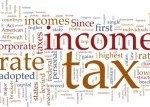As I have written before, it is important for all of us to have some funds set aside in case of emergency. If your vehicle breaks down or you find yourself out of work for a while, you do not want to have to use your retirement savings. There are key reasons why you should not even consider your RRSP as your emergency funds.
First, you get penalized for withdrawing. You pay withholding tax to the government when you first make your withdrawal.
Second, you have to pay more tax at the end of the year on the amount you withdraw, depending upon your income tax bracket.
Third, there are other negative impacts as well, including the fact that you lose that RRSP contribution room permanently. So as you can see withdrawing from your RRSP is expensive.
To prevent ever having to make an RRSP withdrawal before retirement, consider putting some money aside every payday and using either a Tax Free Savings Account or even just a regular savings account that still pays you some interest. This way you have the flexibility to make RRSP contributions with excess savings before the deadline without putting you in the position of touching your RRSP prematurely. (Build your emergency funds until you have three to six months of living expenses and then any money above that can be used for your RRSP in the event that nothing comes up throughout the year.)
Before putting money into your RRSP, make a mental note that this money no longer exists to you until you retire. It is not back up savings. Don’t even include your RRSP balance when you calculate how much money you have. It’s best if you forget about it, because there is no point in contributing to your RRSP if you intend to use it as emergency funds. It just doesn’t make financial sense.




 This is an age-old question and after doing some research on the subject, I have discovered that there are a lot of differing opinions out there. Some say you should pay off all your debt before contributing to an RRSP, while others suggest making RRSP contributions when you are young and then focusing on paying down your mortgage when you are older.
This is an age-old question and after doing some research on the subject, I have discovered that there are a lot of differing opinions out there. Some say you should pay off all your debt before contributing to an RRSP, while others suggest making RRSP contributions when you are young and then focusing on paying down your mortgage when you are older.